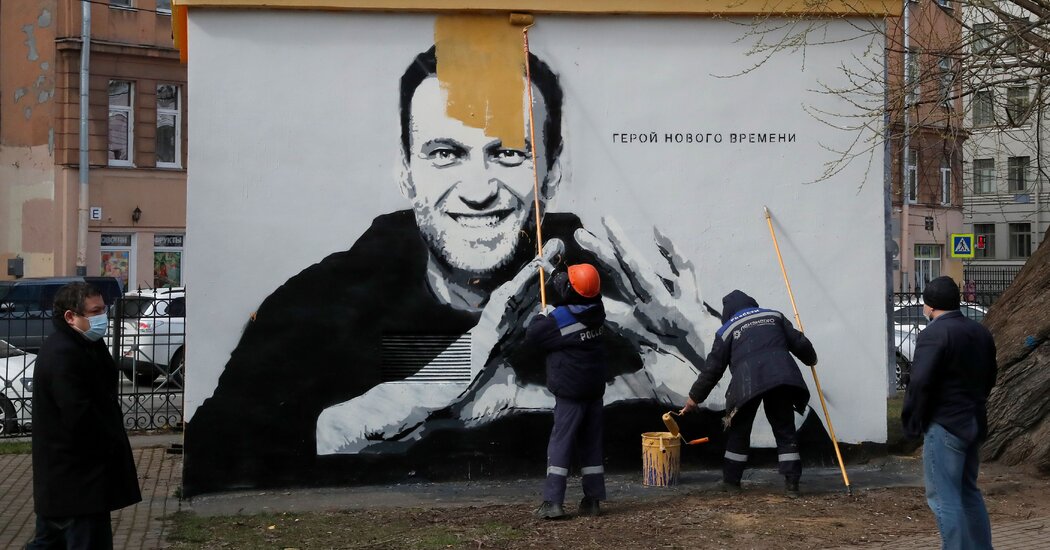On Thursday, he returned to the public for the first time since a hunger strike began to call for better medical treatment. He ended the 24-day hunger strike last week. Speaking on videolink in a Moscow courtroom, Mr Navalny appealed a February conviction for defamation of a World War II veteran, which resulted in a $ 11,500 fine. The court denied the appeal. Mr. Navalny looked gaunt on the courtroom video screens, but when he spoke of the judge’s attempts to interrupt his final statement, his voice was almost as powerful as it was in his courtroom dramatic appearances earlier this year.
Mr Putin, he said, tried to wrap himself in the glory of the Soviet Union’s victory in World War II to justify his efforts to stay in power.
“Your emperor without clothes stole the banner of victory and tried to turn it into a thong for himself,” Navalny told the judge. This is evident from audio recordings released by Russian news agencies. “All of your authorities are occupiers and traitors.”
During a pause in the proceedings, Mr Navalny spoke to his wife Yulia Navalnaya over the video link in the courtroom. He told her that the guards took him to a sauna to improve his appearance on Wednesday before the public saw him. He told her that when he got off his hunger strike, he was gradually increasing the number of spoons of porridge he consumed.
“I’m just a terrible skeleton,” he said, describing what he saw when he looked in the mirror.
In another Moscow courthouse, Mr Navalny’s lawyers met on Thursday for a closed session on the extremism case against his organization. The evidence in the case was classified as a state secret, but the opposition leader’s team said they learned that investigators had reopened criminal investigations against Mr Navalny, Mr Volkov and another top aide, Ivan Zhdanov.
The crime under investigation, the state-run news agency Tass in Russia confirmed, was “the creation of a non-profit organization that violates the privacy and rights of citizens.”
Mr Volkov, a former executive director of a software company who ran Mr Navalny’s nationwide network of regional offices, said not all of them would close. Others, he predicted, would transform into independent political entities dealing with local politics.
